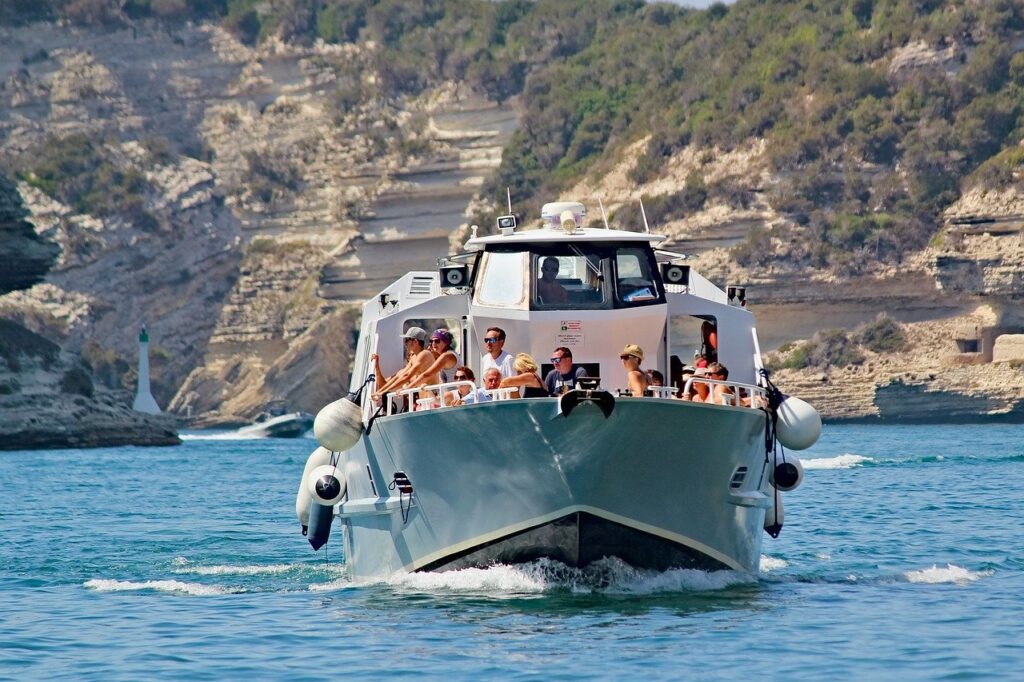The best Days are Good for Travel are typically Tuesdays and Wednesdays due to lower fares and less crowded airports. These midweek days provide a more relaxed travel experience and potentially cheaper flight tickets.

The best days for travel depend on what you’re looking to optimize, such as cost, crowd levels, or convenience. Here’s a general guide:
1. For Cheaper Flights:
- Tuesdays and Wednesdays: These days are usually the cheapest for flights. Airlines often release sales and discounts on Monday nights, and by Tuesday, competitors match those prices.
- Saturday Flights: Midday or evening flights on Saturdays can also be cheaper since most people prefer to travel on Fridays or Sundays.
2. For Avoiding Crowds:
- Midweek (Tuesday, Wednesday, Thursday): These days typically see fewer travelers compared to weekends, making airports and highways less crowded.
- Off-Season Travel: Traveling during off-peak seasons (like January after the holidays or September after summer vacations) will help you avoid crowds and often find better deals.
3. For Convenience:
- Sundays: While more crowded, Sunday can be convenient if you’re planning a short weekend trip or need to get back in time for work or school on Monday.
- Fridays and Mondays: These days are often chosen for long weekend trips, though they tend to be busier and more expensive.
4. For Road Trips:
- Early Morning Departures: Leaving early in the morning on any day can help you avoid traffic, especially if you’re traveling on a Friday or Sunday.
- Tuesdays and Wednesdays: Similar to air travel, these days are often quieter on the roads, particularly outside of major cities.
5. For International Travel:
- Midweek (Tuesday through Thursday): These days can help you avoid the high traffic of weekend travelers, and flights may be cheaper.
Whether you are planning a weekend getaway or a longer vacation, choosing the right days to travel can make a significant difference in your overall experience. It’s important to consider factors such as flight availability, ticket prices, and airport congestion.
By selecting less popular travel days, you can often avoid the stress of crowded terminals and long security lines, allowing for a smoother journey. Additionally, taking advantage of midweek travel can result in cost savings, freeing up extra funds for your trip. Therefore, when planning your next travel adventure, keep in mind that Tuesdays and Wednesdays are often the optimal days for a hassle-free and budget-friendly experience.
Peak Travel Days

Planning the perfect trip requires taking into consideration a multitude of factors, and one crucial element to consider is the timing of your travel. Certain days of the year are notorious for heavy traffic, high flight fares, and crowded tourist attractions. These days, known as peak travel days, can significantly impact the overall experience of your journey. By being aware of the busiest times, you can better plan your trips and avoid unnecessary stress. In this article, we will explore the peak travel days that you should be mindful of, specifically focusing on public holidays and school holidays.
Public Holidays
are joyous occasions when people come together to celebrate various events and traditions. However, they are also times when many individuals take advantage of the extended weekend to go on trips and vacations, leading to a surge in travel demand. This increase in travelers can result in longer lines at airports, congested roads, and higher accommodation prices. It’s important to note that public holidays differ between countries, so be sure to research the specific dates for your destination to adequately plan your trip.
Here are some popular public holidays to keep in mind:
| Holiday | Country | Date |
|---|---|---|
| New Year’s Day | Various | January 1st |
| Independence Day | United States | July 4th |
| Christmas Day | Various | December 25th |
Taking note of these public holidays and planning your trip accordingly can help you avoid the peak travel days associated with these celebrations. Consider adjusting your travel dates to less popular times to maximize your enjoyment and minimize any inconveniences caused by high tourist volumes.
School Holidays
are yet another category of peak travel days that can impact your travel experience. During school breaks, families often take advantage of the time off to go on vacations. This surge in family travel can lead to crowded airports, packed attractions, and increased prices for accommodation. It’s important to consider both your own country’s school holidays and those of your intended destination to avoid clashes and ensure a smoother travel experience.
Here are some common school holiday periods:
- Summer breaks from June to August
- Spring breaks in March or April
- Winter breaks in December or January
By being aware of these peak travel days, you can plan your trips to avoid the busiest periods, ensuring a more enjoyable and stress-free travel experience for you and your loved ones.
Off-peak Travel Days
When planning a trip, choosing the right days to travel can make a significant difference in terms of cost, crowds, and overall experience. Off-peak travel days, including weekdays and non-public holidays, are often preferred by savvy travelers seeking to avoid the rush and save money. Let’s explore the benefits of these travel days and how they can enhance your journey.
Weekdays
Traveling on weekdays is generally less crowded and more affordable compared to weekends. By opting for weekdays, you can enjoy shorter lines at attractions, less traffic congestion, and greater availability of accommodations. Whether it’s exploring a popular tourist spot or embarking on a leisurely road trip, weekdays offer a more relaxed and enjoyable travel experience.
Non-public Holidays
Avoiding public holidays can help you steer clear of peak travel times and exorbitant prices. Non-public holidays typically see a decrease in demand for travel, resulting in more manageable crowds and better deals on flights, accommodations, and activities. This allows you to make the most of your trip without feeling overwhelmed by the masses.
Weather Considerations
When planning a trip, considering the weather is crucial to ensure a pleasant and enjoyable travel experience. Understanding the seasonal variations and climate patterns of your destination can help you make informed decisions about the best time to travel. Let’s delve into the weather considerations to help you determine which days are good for travel.
Seasons
Understanding the seasonal attributes of your destination is essential for deciding when to travel. Different seasons can offer varying experiences, from the vibrant colors of spring to the warm beaches of summer, or the picturesque landscapes of winter. Each season has its unique charm, and knowing what to expect can help you plan your trip accordingly.
Climate
The climate of a destination determines the prevailing weather conditions over an extended period. Before traveling, it’s important to research the typical climate patterns, including temperature, rainfall, and humidity. Be prepared for the climate at your destination to ensure a comfortable and enjoyable trip.

Credit: www.astrogle.com
Cost Considerations
Planning a trip involves considering costs, even in terms of the best days for travel. By being aware of cost considerations, travelers can make informed decisions on which days to book their travel arrangements, ensuring the best value for their money.
When planning your travel, cost considerations play a crucial role in determining the most suitable days to embark on your journey. By strategically choosing the right time to travel, you can ensure that you make the most of your budget without compromising on your travel experience.
Low Season
Traveling during the low season can significantly impact your travel costs. During this period, travel prices tend to be lower compared to peak seasons when demand is high. Low season varies depending on the destination, but is generally characterized by fewer tourists, better availability, and reduced rates for accommodation, flights, and tours.
It’s worth noting that low-season travel also means you can enjoy popular tourist spots without the crowds, allowing you to have a more comfortable and intimate experience. Additionally, many destinations offer discounts and special packages during this time to attract visitors, making it an ideal time to explore new places without breaking the bank.
Midweek Flights
If you are looking to save money on your flights, consider booking midweek departures and arrivals. Most people prefer traveling on weekends, resulting in higher demand and increased prices. By opting for flights on Tuesdays, Wednesdays, or Thursdays, you can take advantage of lower fares offered by airlines.
Moreover, midweek flights often tend to be less crowded, allowing you to have a more relaxed and comfortable journey. By avoiding peak travel days, you can also reduce the likelihood of delays and long queues at the airport, making for a smoother travel experience overall.
To further optimize your cost savings, it is recommended to be flexible with your travel dates. Use flight search engines or airline websites that offer flexible date options, enabling you to compare prices across multiple days and identify the most affordable options.
In conclusion, when considering the best days for travel in terms of cost, it is important to prioritize low-season travel and opt for midweek flights. These strategies not only help you save money but also provide the opportunity to explore new destinations with fewer crowds and enjoy a more comfortable journey.
Crowd Avoidance Tips
If you’re looking to avoid crowds while traveling, consider planning your trip on weekdays rather than weekends. Weekdays often offer a more peaceful and less crowded travel experience compared to weekends, allowing you to enjoy popular attractions without the hustle and bustle of larger crowds.
Timing
When it comes to avoiding crowds during your travels, timing is everything. By carefully choosing the right days and times to visit popular destinations, you can have a much more enjoyable and stress-free experience. Here are some crowd avoidance tips to help you plan your trip smartly:
- Weekdays over weekends: Consider traveling on weekdays instead of weekends, as many people tend to take short trips on weekends, leading to more crowded attractions.
- Off-peak seasons: Research and determine the off-peak seasons for your desired destination. Traveling during these times can drastically reduce the number of tourists and give you a chance to explore without the hustle and bustle.
Destination Choice
Another important factor in avoiding crowds is the destination you choose. Certain places are naturally more crowded than others, so being strategic in your destination selection can make a significant difference. Here are some destination choice tips:
- Less touristy spots: Opt for lesser-known or underrated destinations that are not typically on everyone’s travel itinerary. These hidden gems often offer unique experiences and are less crowded.
- Alternate attractions: Consider visiting popular attractions during less busy times or finding alternative spots nearby that offer similar experiences. This way, you can still enjoy the essence of the destination without dealing with large crowds.

Credit: www.amazon.com
Personal Preferences
When it comes to choosing the best days for travel, personal preferences play a significant role. Everyone has their own unique habits, priorities, and interests that influence their travel decisions. Some individuals thrive on lively and bustling environments, while others seek tranquility and solitude. In this section, we will explore how personal preferences can impact your travel plans and help you find the ideal days for your next adventure.
Schedule Around Special Events
If you are someone who enjoys being part of special events or festivities, then planning your travel around these occasions can enhance your overall experience. Whether it’s a cultural festival, a music concert, or a sporting event, attending these special events can provide you with unforgettable memories. Keep an eye out for local celebrations or national holidays when choosing your travel dates. By aligning your trip with these special events, you can immerse yourself in the local culture and enjoy the vibrant atmosphere.
Visit Destination Attractions
For those who love exploring popular tourist destinations, it’s essential to consider the best days to visit specific attractions. Some attractions might have certain days when they offer discounted tickets or have shorter queues. By doing a bit of research, you can make the most of your visit and avoid unnecessary crowds. Additionally, knowing the peak and off-peak seasons of a particular destination can help you plan your travel accordingly. Exploring attractions during the quieter periods can ensure a more enjoyable experience, allowing you to fully appreciate the beauty and history without feeling rushed or overwhelmed.
Special Events
To make your visit even more memorable, keep an eye out for any special events taking place at your desired destination. This could include seasonal events, cultural festivals, or unique celebrations that are worth experiencing. By aligning your travel dates with these occasions, you can add an extra layer of excitement to your trip and create lifelong memories. Whether it’s watching fireworks on New Year’s Eve, attending a carnival, or witnessing a traditional ceremony, participating in special events can provide a deeper understanding of the local culture and heritage.

Credit: www.thedailybeast.com
Frequently Asked Questions Of Which Days Are Good For Travel
What Are The Best Days To Travel?
The best days to travel are typically Tuesdays, Wednesdays, and Saturdays. These days are less crowded and often have lower fares.
Is It Cheaper To Fly On Weekdays?
Yes, it is generally cheaper to fly on weekdays, especially Tuesdays, Wednesdays, and Saturdays. Airlines tend to offer discounted fares on these less popular travel days.
Are There Any Specific Days To Avoid Traveling?
It is best to avoid traveling on Fridays and Sundays, as these are busy travel days with higher fares. Holidays and school breaks are also times to avoid due to increased demand and higher prices.
Conclusion
Considering the various factors discussed, it is clear that choosing the right day for travel is crucial for a smooth and enjoyable trip. Weekdays tend to be less crowded and more affordable, while weekends offer the chance to make the most of limited vacation time.
Ultimately, it depends on individual preferences and priorities. By understanding the advantages and disadvantages of each day, travelers can make an educated decision that suits their needs. Happy travels!